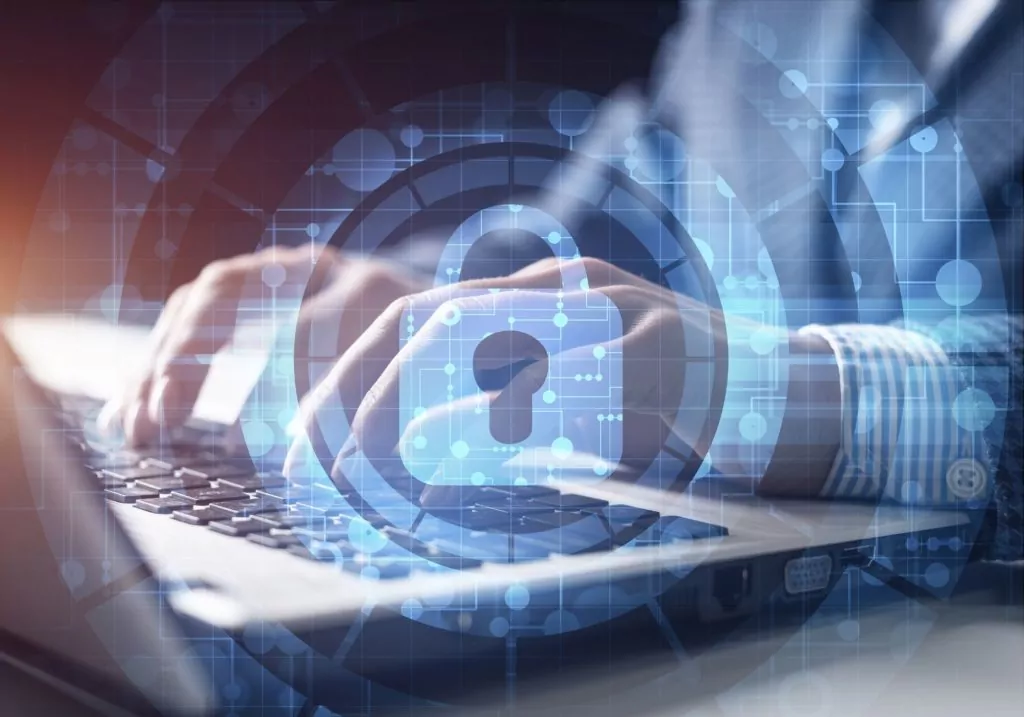When you hear the story of David and Goliath, you likely think of a small underdog facing a much larger and more powerful opponent. This is a fitting analogy for how many of us feel during Cybersecurity Awareness Month in October—like David, going up against the giant world of cybercrime. Just like David had five stones to help him face Goliath, here are five “stones” to help you protect your digital footprint and take control of your online security.
1. First Stone: Backup
Backups are essential for ensuring your digital safety. The 3-2-1 backup strategy is a trusted method to safeguard your files. Here’s how it works:
- Three Copies: Keep three copies of your data (the original and two backups).
- Two Types of Media: Store your backups on two different types of media (like an external hard drive and cloud storage).
- One Off-Site Copy: Always ensure one backup is kept off-site in case of physical damage to your home or office.
Backups protect your data in several ways:
- Prevent Data Loss: Accidental deletions, hardware failures, or software crashes can result in lost files. Regular backups ensure you can recover them.
- Guard Against Cyber Attacks: Ransomware and other attacks can lock or destroy your files. Backups allow you to restore them without giving in to ransom demands.
- Maintain a Historical Record: Backups keep a historical archive, enabling you to retrieve earlier versions of files if needed.
- Peace of Mind: Knowing your data is safely backed up lets you focus on your tasks without worrying about potential losses.
- Compliance: For businesses, backups are often necessary to comply with legal data retention requirements.
- Easy Recovery: If your system crashes, having a backup simplifies the recovery process, helping you get back on track quickly.
2. Second Stone: Passwords
Strong passwords are a vital part of keeping your online accounts secure. Here’s how you can create and manage them effectively:
- Strong & Unique: Use a mix of uppercase and lowercase letters, numbers, and special characters to create complex passwords. Avoid easy-to-guess information like birthdays or common words. Passphrases, such as “mYd0G$n@ME1$b00” (My Dog’s Name is Boo), are great because they’re easy to remember but hard to crack.
- Regular Updates: Change your passwords regularly, especially if you suspect an account may have been compromised. To keep track of your passwords, consider using a password manager.
- Recovery Options: Make sure your recovery email and phone number are always up to date. Many accounts rely on your phone for recovery, making this step crucial.
3. Third Stone: Social Media
Social media can expose a lot of personal information if not handled carefully. To protect your privacy:
- Adjust Privacy Settings: Limit who can see your posts, photos, and personal details. It’s wise to restrict access to friends or a select group rather than the public.
- Be Selective About Sharing: Think carefully before posting sensitive information, such as your location or personal milestones, as it could be used against you.
- Limit Friend Requests: Only accept friend or connection requests from people you know personally. Unknown users may have malicious intentions.
- Review Your Friends List: Regularly review and remove people you no longer wish to stay connected with to maintain a secure network.
- Use Strong Passwords & 2FA: Strengthen your accounts by using unique passwords and enabling two-factor authentication (2FA) to add another layer of protection.
- Be Careful with Third-Party Apps: Limit the number of third-party apps that have access to your social media. Regularly review and revoke permissions for those you no longer use.
- Stay Alert to Scams: Keep informed about common social media scams and phishing tactics.
- Think Before You Like or Share: Your online interactions contribute to your digital footprint. Be mindful of the posts and pages you engage with.
- Log Out of Shared Devices: Always log out when using shared or public devices to prevent unauthorized access to your account.
4. Fourth Stone: Protection Tools (VPN, Two-Factor Authentication, Firewall)
Enhancing your online security requires using tools like a Virtual Private Network (VPN), two-factor authentication (2FA), and firewalls. Here’s how they help:
- VPN (Virtual Private Network): A VPN encrypts your internet connection, preventing hackers or third parties from intercepting your data. It hides your IP address and adds an extra layer of privacy, especially when using public Wi-Fi. VPNs also let you access region-restricted content securely.
- Two-Factor Authentication (2FA): 2FA requires an extra step beyond your password to access your accounts, such as a code sent to your phone. Even if your password is compromised, 2FA makes it much harder for hackers to get in. Most major services offer 2FA, making it simple to add an additional layer of security.
- Firewalls: Firewalls act as a barrier between your network and online threats, blocking unauthorized access while allowing legitimate traffic. They monitor incoming and outgoing data to detect suspicious activity or malware. Customizing firewall settings can enhance protection based on your needs.
Using a combination of VPN, 2FA, and a firewall creates multiple layers of security that make it far more difficult for cybercriminals to breach your defenses.
5. Fifth Stone: Phishing Awareness
Phishing is one of the most common tactics used by cybercriminals. Understanding how it works and how to avoid falling victim to it is crucial:
- What Is Phishing? Phishing involves cyber attackers impersonating legitimate organizations or people to trick you into revealing sensitive information like passwords, credit card numbers, or personal details.
- How Phishing Works: Attackers usually send emails or messages that appear to come from trusted sources, like banks or colleagues. They create a sense of urgency to push you into acting quickly. These messages often contain links to fake websites designed to steal your credentials.
- Types of Phishing: Spear phishing targets specific individuals or organizations, often using personalized information to seem more credible. Whaling targets high-profile individuals, like company executives. Clone phishing duplicates legitimate emails but replaces the links or attachments with malicious versions.
- How to Protect Yourself: Always double-check the sender’s email address and be cautious of unexpected messages. Hover over links to see where they lead before clicking. Look out for red flags like poor grammar, generic greetings, or unusual requests. Use security software that includes phishing protection and report any suspicious emails.
At Secure Records Solutions, we celebrate cybersecurity awareness year-round. Whether it’s through secure document storage, scanning, or compliant shredding services, we help you protect your physical and digital documents. Call us at 800-614-0856 or complete our contact form to find out how we can help you protect your digital footprint.



